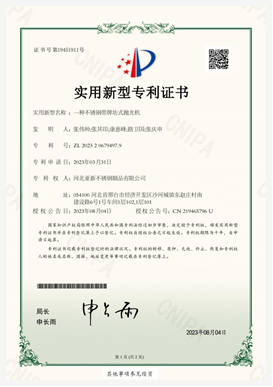crop reaper
The Evolution and Impact of Crop Reapers
Agriculture has always been a cornerstone of human civilization, evolving through the centuries to meet the growing demands of society. One of the most significant advancements in this field has been the introduction of the crop reaper, a machine designed to harvest crops efficiently. This article will explore the history, development, and significance of crop reapers in modern agriculture.
Historical Background
The concept of the crop reaper can be traced back to ancient civilizations, where manual tools such as sickles and scythes were used to cut grains. These hand-held implements, while effective, presented considerable challenges, including time consumption and the physical strain on farmers. The need for an efficient harvesting method led to innovations over the years.
The first mechanical reaper was invented by Cyrus McCormick in 1831. His machine revolutionized grain harvesting, allowing farmers to drastically reduce their workload. McCormick’s reaper used a series of blades to cut down crops and a platform to collect them. This invention not only improved productivity but also transformed agricultural practices, enabling farmers to cultivate larger areas.
Technological Advancements
As the demand for food increased with the growing population, the agricultural industry required more advanced solutions. Over the years, the design of crop reapers has undergone significant changes. The evolution of technology has seen the introduction of powered reapers and combines that blend the functionalities of a harvester and a thresher.
Modern crop reapers, often known as combine harvesters, are now equipped with cutting-edge technology. These machines can harvest, thresh, and clean the grain all in one operation. They are outfitted with GPS systems that allow for precision farming, enabling farmers to monitor their fields meticulously. The automated features of today’s crop reapers significantly decrease the need for manual labor while maximizing efficiency and productivity.
crop reaper

Impact on Agriculture
The introduction of crop reapers has had a profound impact on agriculture and the global economy. With the ability to harvest crops faster and more efficiently, farmers can increase their yield and reduce costs. This enhancement has allowed for the growth of large-scale farming operations, which provide food for millions of people worldwide.
Furthermore, crop reapers have played a pivotal role in addressing food security issues. As populations continue to grow, the demand for food escalates. By enabling farmers to cultivate more land and harvest crops more quickly, crop reapers contribute to meeting the world’s food supply needs. Additionally, the efficiency brought about by these machines has encouraged the commercialization of agriculture, leading to a more stable food supply chain.
Sustainability and Future Trends
Despite the undeniable benefits of mechanical harvesting, there are concerns regarding sustainability and environmental impact. The use of large machines can lead to soil degradation and compaction, affecting future crop yields. However, the agricultural industry is increasingly focusing on sustainable practices, and modern crop reapers are being designed with these considerations in mind.
Innovations such as precision agriculture and bioengineering are paving the way for more sustainable harvesting methods. Future crop reapers might utilize renewable energy sources and new materials to reduce their environmental footprint. Drones and robotics are also being integrated into agricultural practices to complement traditional machines, improving efficiency while preserving the environment.
Conclusion
In conclusion, the development of crop reapers has been a transformative force in agriculture. From McCormick’s mechanical reaper to today’s advanced combines, these machines have revolutionized how crops are harvested and significantly impacted food production. As we look toward the future, the challenge remains to balance mechanization with sustainability, ensuring that the agricultural advancements can meet the needs of a growing population while protecting our planet. The evolution of crop reapers is a testament to human ingenuity and our commitment to improving food production for generations to come.
Latest news
-
When to Upgrade Your Old Forage HarvesterNewsJun.05,2025
-
One Forage Harvester for All Your NeedsNewsJun.05,2025
-
Mastering the Grass Reaper MachineNewsJun.05,2025
-
How Small Farms Make Full Use of Wheat ReaperNewsJun.05,2025
-
Harvesting Wheat the Easy Way: Use a Mini Tractor ReaperNewsJun.05,2025
-
Growing Demand for the Mini Tractor Reaper in AsiaNewsJun.05,2025
